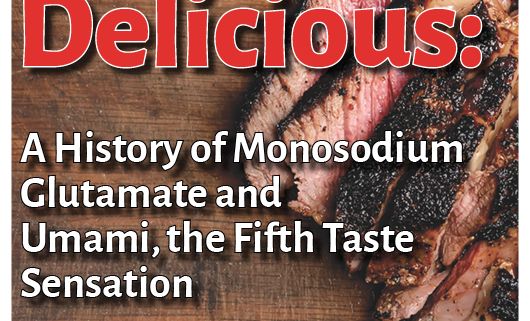
Part of Dishing: Food, Feminism, and the Way We Eat. Video now available on YouTube!
A talk by Sarah Tracy, Adjunct Assistant Professor at the UCLA Center for the Study of Women and the UCLA Institute for Society and Genetics
In this talk, Sarah Tracy will discuss the material and immaterial dimensions of pleasure, pain, guilt, and regret around eating processed and prepared foods. She does so through the case study of self-identified MSG sensitivity – as archived in official FDA reporting channels and in online community forums, e.g. blogs, consumer advocacy groups, Reddit. These questions are in reference to broader discussions of the gendered moral economies of food provision and preparation, and that casual privilege called eating/dining out. Who’s worrying about what to eat – and how “good” it is? Going down? Going through? Coming out? These and other abiding concerns are a kind of emotional labor that has, historically, been feminized in the U.S.
Sarah Tracy is an historian of the recent past, and of the United States in the world. Her work draws on feminist science and technology studies (STS), food studies, post-colonial theory, sensory history, and critical histories of capitalism.
Tracy’s dissertation is called, “Delicious: A History of Monosodium Glutamate and Umami, the Fifth Taste Sensation,” and it examines two interrelated objects: the global commodity and flavour enhancer monosodium glutamate (MSG), and umami (roughly translated from the Japanese as “delicious”), the fifth basic taste that MSG is understood to confer. This project situates umami within translations of the life sciences between Japan and the United States, and shows how the metabolics of taste are inseparable from global capitalisms. It brings feminist STS into conversation with sensory history, cultural history, and post-colonial studies to foster cross-disciplinary insight into how foods mediate value, health, class, race, happiness, and violation.
Tracy maps how MSG explodes our categories of food, drug, and toxin. She trace the additive’s journey from Japan and across the globe and analyzes how it has been fetishized, racialized, and vilified. Tracy considers MSG as a focus point for connecting questions of authenticity and risk in foods; for connecting the state of knowledge in sensory science, neuroscience, and food design and marketing; and for thinking about how our food systems organize not only ways of being human (class, ethnicity, region), but the ways of being of creatures large and small (e.g. the laboratory mice in safety and cancer testing, the farmed bacteria who produce the glutamic acid we eat when we eat MSG).
Tracy’s research has been published in Global Food History, and is forthcoming in Radical History Review.



